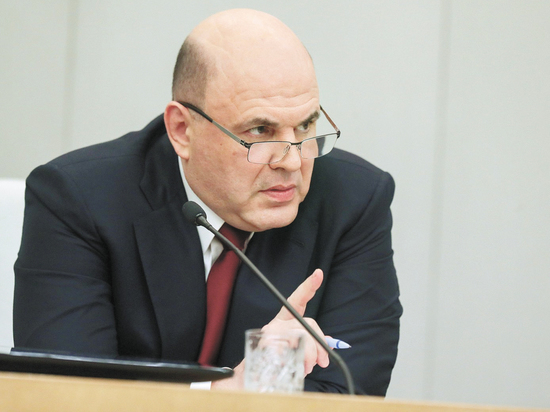Mishustin announced the issue of government bonds in yuan and a new type of investment for Russians
[ad_1]

The prime minister goes for a long ruble
The government is looking for mechanisms that will force Russians to get their savings out from under the mattress and invest them in the economy. There are about 38 trillion rubles in the bank accounts of citizens, more than 16 trillion rubles. piled up in their hands. The urgent need for this money arose in connection with the closure of global financial markets and a sharp increase in budgetary spending in connection with the NWO. “In order to support people’s interest in new mechanisms, certain benefits will be formed,” Mikhail Mishustin promised, speaking on Tuesday at the government’s coordination center. Two instruments are now at the final stage of preparation – a new type of investment accounts and a long-term savings program.
The discussion on how to provide the Russian economy with long-term money took place within the framework of the strategic session “Ensuring the Financial Sovereignty of the Russian Federation”. Representatives of all branches of government, the Central Bank, the Accounts Chamber and two state-owned banks came to brainstorm in the “bunker” of the government. Mikhail Mishustin, in order to emphasize the equality of opinions of all participants, took a seat in the second row, and the main generators of ideas – Finance Minister Anton Siluanov and Economy Minister Maxim Reshetnikov – were placed on the first row. This is not the first time that the issue of long-term money has been discussed, but officials still have time: Vladimir Putin instructed the government to create mechanisms to convert public funds into investments by July 1, 2023.
Opening the discussion, Mikhail Mishustin said that the West “continues to do everything possible to limit the Russian economy’s access to global finance – loans and investments.” Thus, unfriendly countries want to restrain the development of the Russian Federation “not only in the short term, but also in the long term.” In the current situation, one has to rely primarily on internal reserves, especially since they are available: a record amount of funds has accumulated in the accounts of the population. “(It is necessary) to create additional sources for financing the economy, to form a pool of so-called long-term money so that companies can build complex projects, including in the high-tech sector,” Mishustin said, noting that “a number of decisions are already being prepared by the government and the State Duma.”
The pool of long money, he said, will include a new type of investment accounts and a long-term savings program. Both mechanisms, as requested by Vladimir Putin, provide incentives that were not previously available on the financial market. According to the prime minister, this is done in order to maintain people’s interest in these products. Citizens who put money into so-called new investment accounts or send it to a long-term savings program will be able to count on a single tax deduction from personal income tax. It is assumed that the maximum amount of the annual contribution to receive the deduction will be 400 thousand rubles. (In this case, it will be possible to return 52 thousand rubles, i.e. 13% of the amount.) Of course, under such conditions, investments must be long-term: funds cannot be withdrawn within 10 years. (Ahead of schedule – only in case of “difficult life situations”.)
As Finance Minister Anton Siluanov explained, the long-term savings program is aimed at obtaining additional income for citizens in the future – after retirement. In addition to contributions, to generate this income, it will be possible to use maternity capital and funds from the funded part of the pension, frozen until 2025. In theory, this should also encourage citizens to participate in the program, especially since the authorities promise to protect their investments. “We will expand the system of guarantees for the safety of savings, similar to the one that is currently in effect for bank deposits,” Mikhail Mishustin said at the session. (It is assumed that the state will insure contributions in the amount of up to 2.8 million rubles.) The money that will be attracted through new mechanisms is planned to be used to finance large infrastructure projects, as well as the technological re-equipment of sectors of the Russian economy. However, whether the Russians will trust the state is a big question. Over the past 30 years, they have lost their money more than once. And the promises of a comfortable old age, sounding from the lips of officials, in the vast majority of economically active citizens cause exclusively nervous laughter.
Another source of long-term money, Mikhail Mishustin called the issue of federal loan bonds (OFZ) in friendly currencies, primarily in yuan. Obviously, negotiations with China on this score ended successfully. The prime minister also referred to the positive experience of commercial issuers. The placement of government bonds in yuan may become one of the sources of financing the budget deficit, which is likely to break another record this year. Previously, the plan to fight for financial sovereignty also contained proposals for issuing so-called “patriotic” OFZs – targeted loans to finance projects important for the country. But the Ministry of Finance said that this idea is no longer relevant.
Newspaper headline:
Mishustin goes for a long ruble
[ad_2]
Source link






